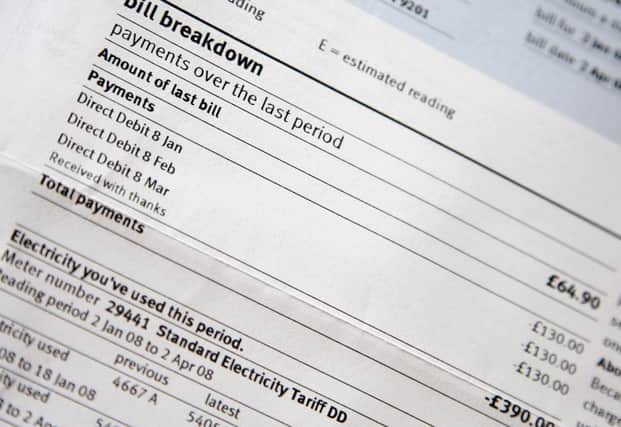Don’t Pay UK: Expert warns why you should NOT cancel energy bill direct debits


Some of the most severe consequences are set to include the ability to get a loan or mortgage in the future.
This warning comes as The Don’t Pay UK Campaign calls on bill-payers to cancel their direct debit payments from October 1 to coincide with Ofgem lifting the energy price cap once again.
Advertisement
Hide AdAdvertisement
Hide AdBrean Horne, a personal finance expert at comparison site, NerdWallet, said with energy prices expected to soar to £3,359 a year for the average household in the next six months, many will risk falling into financial difficulty which may lead to problem debt if they don’t have savings to fall back on.
“While the government plans to offer a £400 energy bill discount this winter, it doesn’t go nearly far enough to cover the staggering increases that many households face. Although some consumers may be tempted, to follow The Don’t Pay UK movement,there may be dire long-term consequences.
“Suppliers usually charge a customers are likely to face a non-payment fee. Energy customers face additional fees if they avoid paying their monthly direct debit.
“While direct debit tends to be the cheapest and most convenient way to pay for gas and electricity, your supplier is likely to send you bills at a much higher rate if you cancel, which will be added to the arrears.
Advertisement
Hide AdAdvertisement
Hide Ad“If you have arrears and do not arrange to start paying back what is owed, your supplier can begin the process of moving you over to a prepayment meter.
“Missed payments and defaults on an energy bill can also cause harm to your credit score, in a similar way to missing a payment for a loan or credit card.
“Having a poor credit score can make securing finance from a lender much more difficult because it indicates you may struggle to pay back what you borrow based on your payment history.
“Those who are already struggling to keep up with their energy payments - or believe they will - can seek help from Citizens Advice for impartial advice and guidance.
Homeowners may also be able to take advantage of certain benefits, grants and help offered by the government and energy suppliers.”